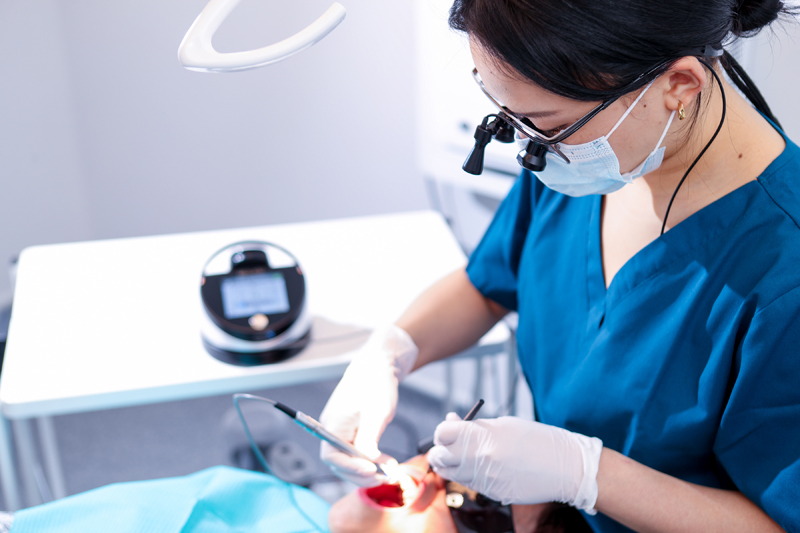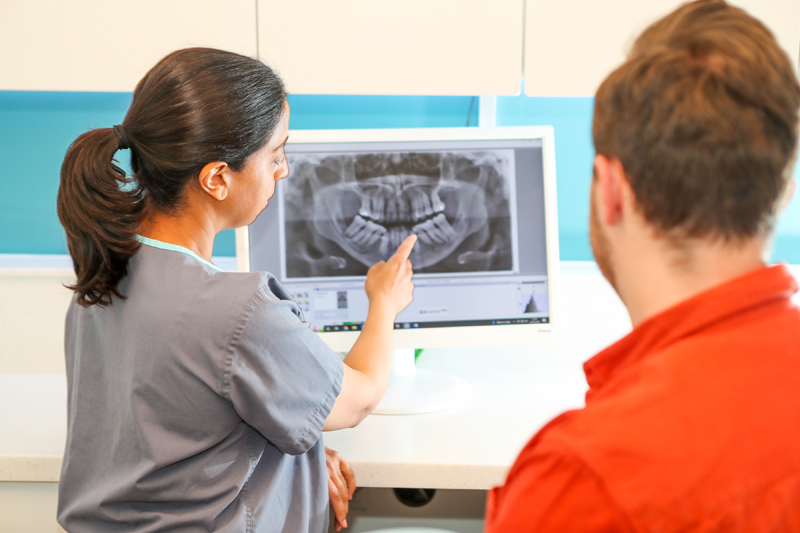Award winning specialists
in the treatment of
gum disease
About us
How to treat
gum disease

Laser gum
treatment

Pure Periodontics is the ONLY specialist periodontics practice in central London offering the revolutionary Waterlase™ treatment. Minimally invasive and using water in conjunction with a laser to treat infected tissue, the innovative Waterlase provides enhanced clinical results.
Supportive
periodontal care

Treatments

Do you have
gum disease?
Whilst there are many different types and stages of periodontal disease, there are some common symptoms which indicate the presence of periodontal infection and should not be overlooked. Symptoms of gum disease can include red, swollen, tender or bleeding gums, bad breath, receding gums, migration & loosening of your teeth, a change in your bite and spaces developing between your teeth.
If you recognise any of these early symptoms of periodontal disease, it’s important not to ignore them and that you have these abnormalities checked. You’ll find more information about the different stages of gum disease using the link below.

Award winning
periodontal care

Expert team
Meet the caring team
who will treat you

Dr Neesha Patel
Specialist Periodontist
Clinical Director
Neesha is the Clinical Director at Pure Periodontics and a Consultant Periodontist at Kings College Hospital, London.
Read more >

Dr Neesha Patel
Specialist Periodontist / Clinical Director

Kirstie Thwaites
Dental Hygienist & Therapist

Rachna Rai
Dental Hygienist and Therapist

Laura Hobbs
Dental Hygienist and Therapist

Vesh Maya Roka
Dental Nurse

Elena Martinova
Dental Nurse / Receptionist

Sukriti KC
Strategic Consultant and Practice Manager

Petruta Roxana
Treatment Coordinator / Dental Nurse
Gum disease
Gum disease FAQ’s
What is gingivitis?
What is periodontitis?
What is the difference between gingivitis and periodontitis?
What are the symptoms of gum disease?
What are the links between periodontitis and other diseases?
What is a periodontist?
How is periodontitis treated?
What is Waterlase™ treatment?
Waterlase™ is one of the most advanced periodontal treatments in dentistry today. Using patented technology, Waterlase™ combines focused light energy with a stream of water for a highly precise and minimally invasive dental experience, without the heat, vibration and pressure associated with traditional dental procedures. In periodontology, Waterlase™ is used to remove debris and bacteria that has built up between the teeth and gums.
Is there anything I can do to prevent gum disease?
In order to prevent gum disease, plaque control is essential. Daily brushing and flossing your teeth, along with biannual hygienist visits can prevent or in some cases reverse gum disease if it's in its infancy. Antibacterial mouthwash can also help to reduce bacteria that can lead to plaque and inflammation. At Pure Periodontics, our pre and post treatment care team are on hand to support you with maintaining improvements and minimising the recurrence of gum disease.
What are the stages of gum disease?
Typically, periodontal disease can be categorised into four distinct stages. These include:
Stage 1: Gingivitis
Stage 2: Early Periodontal Disease
Stage 3: Moderate Periodontal Disease
Stage 4: Advanced Periodontal Disease


